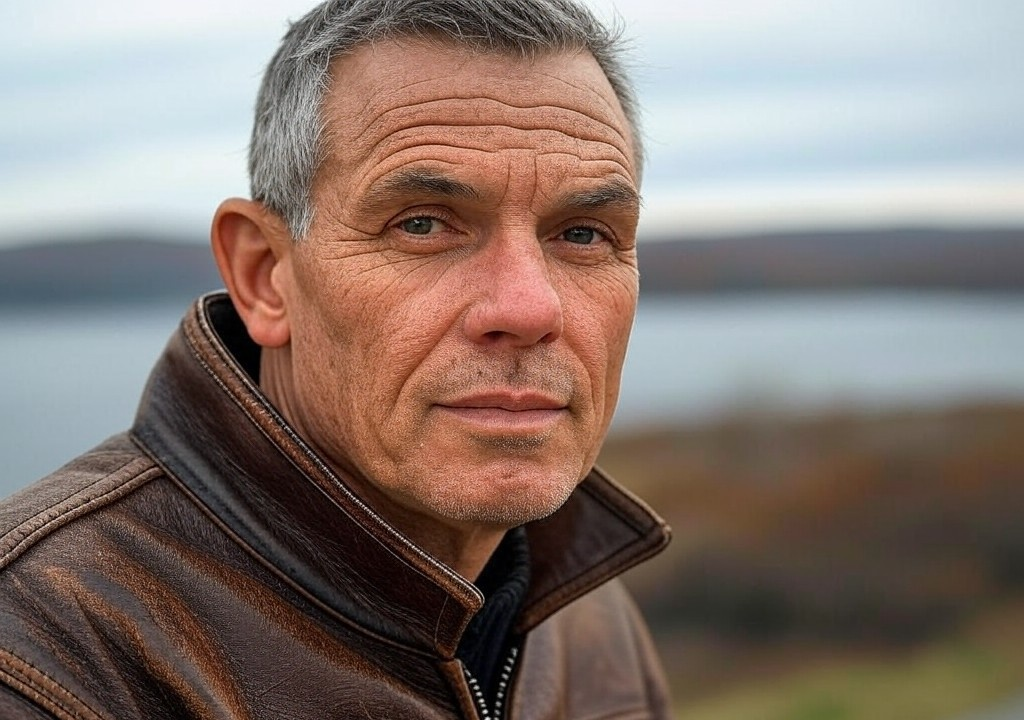I was seven years old the first time I stood at the edge of a diving board, staring down at the unbroken surface of a community pool. A crowd of classmates and their parents gathered below, waiting for me to jump. But my legs wouldn’t move. I felt like I was on trial, caught between the expectation to leap and the paralyzing fear of what would happen when I did. Spoiler alert: I climbed back down the ladder that day and vowed to never face a diving board—or public humiliation—again.
That little scene wasn’t just about water. For the better part of my life, I carried a deep, nagging fear of vulnerability. It showed up in small ways—avoiding karaoke nights (an Appalachian sin), overthinking text messages, ducking office talent shows—but it loomed largest when it came to relationships. Let’s just say I was the kind of guy who would rather spend 30 minutes Googling "what did they mean by that emoji?" than risk asking directly.
But fear has a way of demanding your attention. For me, the tipping point wasn’t some grand romantic epiphany. It was a quiet, unexpectedly humbling moment on a Maine shoreline involving a bitter breakup, an introspective seagull, and—believe it or not—a little gift from my coal-mining roots. So yeah, let’s dive in.
Facing the Breakup Blues
Breakups, man. They have a knack for dragging insecurities to the surface like a stray cat deposits a dead bird on your porch—disgusting, but impossible to ignore. When my last relationship ended, it wasn’t like a Taylor Swift ballad where clarity arrives on a bridge. Nope. It was messy, silent, and left me questioning what I could’ve done differently.
My ex’s parting words? “You never really let me in.” Cue the seagull, perched stoically as if mocking me. It hit me then: that fear of being seen, being understood, had been ricocheting into every part of my life. Sure, I could blame it on West Virginia stoicism or the cultural expectation to “tough it out,” but the truth? I was scared. Scared to let someone see the parts of me that weren’t picture-perfect.
I took a long walk on the beach that day, replaying all the moments where I’d opted for emotional safety over openness. The times I said “no big deal” when it absolutely was. The late-night arguments I sidestepped because I couldn’t handle the discomfort of honesty. The many, many “I’m fines” that were, in fact, anything but fine. It was a tough mirror to hold up—and even harder to accept the reflection staring back.
The Coal Miner’s Lesson
Here’s the thing about growing up in a coal-mining town: you learn pretty quickly that there’s no pretending underground. You work as a team, day in and day out, and you depend on each other wholly. My dad used to say, “You can’t fake it in the mines,” a phrase that took me years to truly understand.
Relationships, it turns out, are a little like coal mining. You’re either willing to get gritty and go deep together, or you’ll stick to the surface and leave empty-handed. The danger isn’t in the depth—it’s in refusing to go down at all.
So, with Dad’s words rattling around my brain, I decided to do the thing I’d been avoiding for years: be vulnerable. It started small, like sharing an embarrassing story at work or calling an old friend to apologize for the way I’d shut down during a disagreement. But pretty soon it extended to bigger and scarier moments, like telling someone how I really felt about them, even knowing they might not feel the same.
Climbing Off the Metaphorical Ladder
If the diving board was my first symbol of fear, it also became my blueprint for conquering it. No, I didn’t go join the neighborhood swim team (let’s not get carried away). But that childhood memory taught me that fear thrives in hesitation. Waiting only makes it stronger. So, like the shaky-legged kid I once was, I started leaning into the leap—even when it meant people might see me flounder.
Here’s what that looked like:
- Admitting to a date that I was nervous instead of pretending to be cool. Turns out, they liked the honesty.
- Being upfront about my quirks, like how I belt out John Denver songs when I’m alone in the car. (A risk not everyone would appreciate, but hey, it filters out the wrong crowd.)
- Finally putting words to feelings that had been stuck in my throat for years, whether it was “I love you” or simply “I’m sorry.”
Not every leap ended gracefully. Sometimes I hit the water hard, bellyflopping into rejection or awkward conversations. But you know what? Each jump made the next one easier. Vulnerability turned out to be less like drowning and more like swimming—scary at first, but ultimately freeing once you figured out how to tread water.
Building Deeper Connections
Here’s what they don’t always tell you about vulnerability: it’s magnetic. The more I leaned into my awkward, imperfect truth, the more I found people leaning back. My friendships deepened. My flirtations became more genuine. I stopped feeling like I had to stage-manage every moment to look confident and started embracing the weird, wobbly sides of myself.
That vulnerable energy even made its way into my writing. Suddenly, the stories I’d held onto—about growing up with a family who believed in grit and dinner-table debates—felt worth telling. And ironically, the more I shared, the less alone I felt. As it turns out, most people are secretly trying to leap off a metaphorical diving board of their own.
How You Can Take the Leap, Too
I won’t sugarcoat it: vulnerability is terrifying. It’s like standing barefaced in front of a crowd while holding a karaoke mic, knowing you’ve completely forgotten the words to “Sweet Caroline.” But here are a few tricks to help ease the fear:
-
Start Small
Share a funny childhood memory you’ve been too embarrassed to tell before. Send a heartfelt text to someone you trust. Vulnerability is like a muscle—the more you use it, the stronger it gets. -
Remind Yourself Why It Matters
If you keep everyone at arm’s length, you might avoid hurt—but you’ll also avoid connection. Ask yourself: Is keeping safe worth feeling lonely? -
Accept Imperfection
Not every leap will be a triple backflip. Sometimes you’ll bellyflop, and that’s okay. Vulnerability isn’t about perfection; it’s about honesty. -
Trust the Right People
Not everyone deserves your openness, and that’s perfectly fine. Start with the folks who’ve already proven they’re in your corner.
Finding Freedom in the Fall
It’s been years since the day I climbed down that first diving board, choosing safety over courage. But now, every time fear creeps into my relationships and whispers “don’t jump,” I ask myself a different question: What’s the worst that could happen?
Most of the time, the answer is embarrassment—or maybe even small heartbreak. Manageable. But the best-case scenario? Deeper connection. Love. Growth. The big stuff that makes life worth living.
So, do I still feel fear? Absolutely. But I’m learning to jump anyway. After all, you can’t fake it in the mines—or in life.
And who knows? Maybe one day I’ll tackle an actual diving board again. But I’m starting small. There’s a karaoke night at the local bar this Friday, and I’ve got “Country Roads” ready to go. Seems like a good place to begin.




















